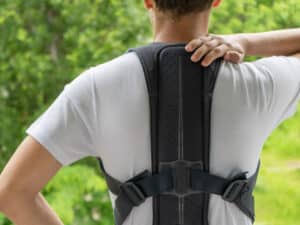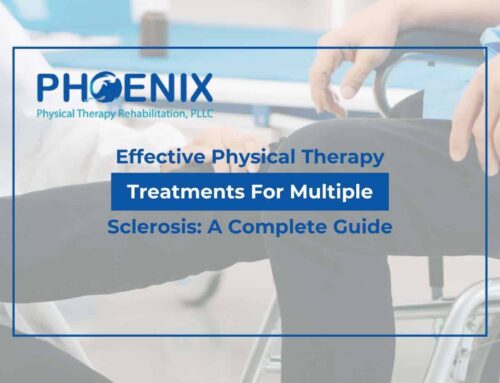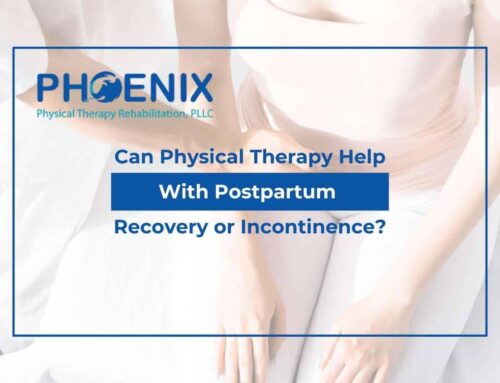
While sometimes these problems, especially if it’s due to an injury, can be very short-lived, it’s still a good idea to see a doctor and then a physical therapist. They can show you how to strengthen the areas around and help you manage any pain that you feel so that you can regain your full mobility and will be able to resume your lifestyle (mostly) that you were enjoying before.
Here are some ways that lumbar spine rehabilitation can help you.
Methods of Rehabilitation
There are basically two different types of physical therapy.
- Passive Physical Therapy – The physical therapist will be the one doing the treatment to the patient – things like electrical stimulation, heat application, and ice packs. They may use a heating pad to warm up your muscles before any exercise or stretching. Then they may put on an ice pack to cool the muscles down afterward. This can be very beneficial for preventing soreness the next day.
- Active Physical Therapy – How this is done depends on your strength at the time of the first appointment. You may very limited in your scope of movement. The physical therapist may have to assist you with the exercises. This is called active-assisted therapy. As you gain strength in your problem area and start doing the exercises on your own, then this shifts to just regular active physical therapy.
Beneficial Exercises
When it comes to correcting the lower-back problem, there are several things that can be done:
- Stretching – This is done so that the muscles can move in a proper range of motion. If you haven’t used particular muscles, they can atrophy. The stretching is important. Another thing is that spasms can happen from bad posture. Again, stretching is key. The physical therapist will likely target your lower back muscles, your abdominal muscles, hips, and legs. This should be done slowly without bouncing.
- Dynamic Stabilization Exercises – Balance plays a big part in your lower back and the exercises help you regain that balance. You may be using exercise balls, balancing machines to do these. Your spine will get much-needed support from the surrounding muscles.
- Core Strengthening Exercises – Your abdominal muscles are crucial to your lower back. So are your lower back muscles. Think of them forming a “belt of muscle” that protect your spine. Strengthen with things like crunches, sit-ups, leg raises, hyperextensions, and “good morning”, where you have a broom across your shoulders and bend down like you’re touching your toes.
Solutions to Problems
There may be some times when patients say that the program is not working for them. There are some reasons for this:
- There is not a component that includes active exercise. The muscles need to work to get stronger and no amount of heat and ice can replace that. Yes, they do have some use, but the patient needs to exercise along with the heat and cold/stimulation. Otherwise they are just not going to get the results that they are looking for.
- The patient is not doing the exercises with the proper form. This is a big thing since doing this improperly can wind up setting them back farther than they were before the injury. Surgery might even be required… and that can add many more weeks to the rehab. So both the patient and trainer must pay attention to how they are doing each exercise.
- Patients may just go to physical therapy and then spend the rest of the week not doing anything. That’s not going to get them anywhere. They need to do daily exercises to help them get stronger. The physical therapist gives them the exercises for a reason… and they need to do it. That also extends to the long term. If they don’t, then they risk backsliding and needing to go back to the physical therapist.
Ultimately, what it comes down to is keeping the muscles of the lower back and abdomen strong. If that doesn’t happen, then the previous problems will resurface. It doesn’t have to happen – patients are literally given a blueprint of what they need to do post-physical therapy to maintain their pain-free situation. It’s really not a huge investment in time and many exercises can be done at home.
While having problems with the lumbar spine can be aggravating, it’s far from being a lost cause. There are a lot of things that the physical therapist can do to help – they just have to be willing to listen to what they are being told… the PT went to school for a long time and they know what they are doing. Listening can make two people happy – the patient and the physical therapist.
When it comes to lumbar spine rehabilitation, few are better at helping people recover from these than the staff at Phoenix Physical Therapy Rehabilitation, PLLC. They have three offices: Brooklyn and Rosedale, and they can help you get back to where you were before. Give them a call to learn how you can benefit from a visit and to make an appointment: 347-733-1916.
Phoenix Physical Therapy
Rosedale Location
23520 147th Avenue, Suite 1,
Rosedale, NY, 11422
Brooklyn Location
7510 4th Ave., Suite 3,
Brooklyn, NY, 11209
Phone: (347) 733-1916







